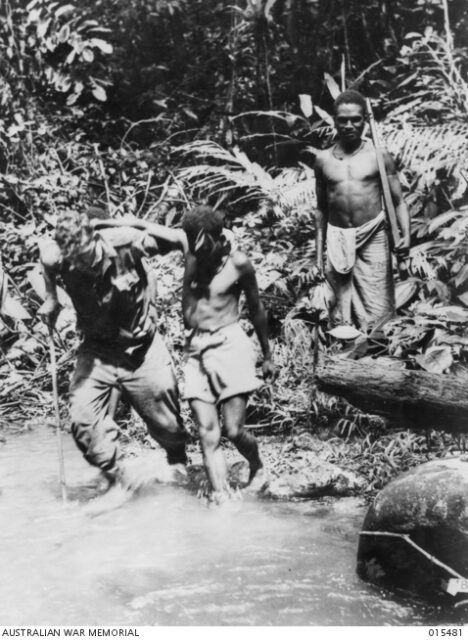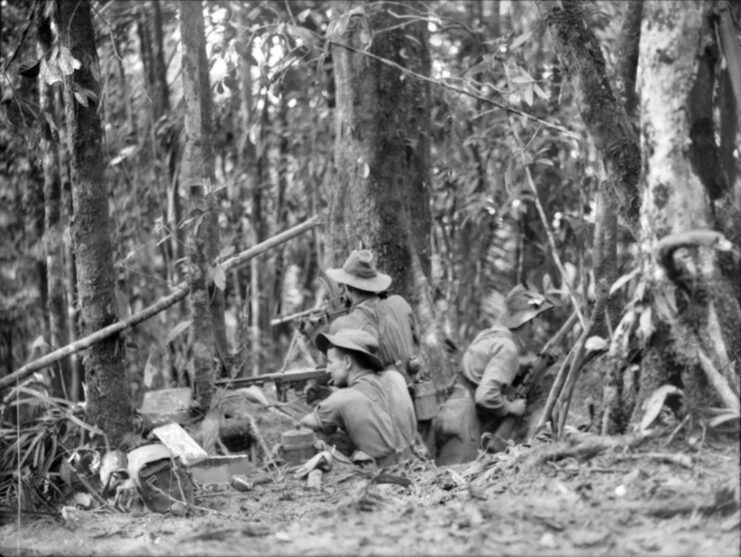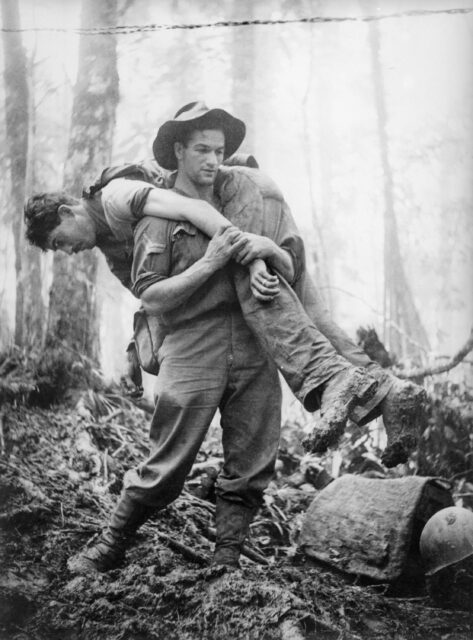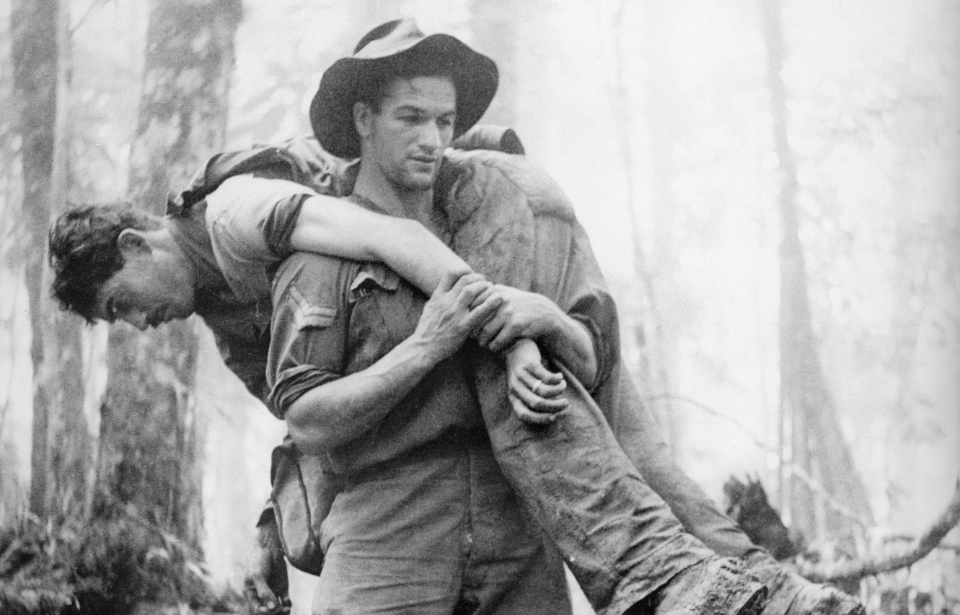In the turmoil of World War II, numerous heroes were made, one of whom was Australian stretcher bearer Leslie “Bull” Allen. His remarkable bravery and resolve set him apart from his peers; Allen’s steadfast dedication, even in the most dangerous of circumstances, cemented his reputation as a military icon when he risked his own life to carry out a bold rescue under enemy fire at Mount Tambu.
Leslie ‘Bull’ Allen had a difficult childhood

Leslie “Bull” Allen was born in Victoria, Australia, and raised as an orphan alongside his sister. He had a difficult childhood and began working as a laborer on farms at the age of 12.
When World War II began, Allen quickly volunteered for the Second Australian Imperial Force. He was subsequently assigned to the 2/5th Battalion, 17th Brigade, 6th Division, and sent to Palestine for training, where he was made a stretcher bearer for Don Company.
Early service during World War II

In Palestine, Bull Allen earned his famous nickname. While playing rugby, he had a habit of charging toward opposing players like a bull. This was complemented by his above-average height for the time. One comrade later recalled, “You could hear him a mile off! Bull was thus one of the battalion’s most recognizable…and one of its most popular characters.”
Allen saw service throughout World War II, including during the Western Desert and Syria-Lebanon Campaigns, although he was admitted to hospital in 1941 for “anxiety neurosis.” Despite this, he was regarded by many as calm and steady in combat.
Leslie ‘Bull’ Allen showed immense dedication to his comrades

In one instance, Bull Allen looked after his wounded throughout the night, only to walk 6.2 miles the following day after no sleep to get them transportation. In another, while serving in Papua New Guinea, he was awarded the Military Medal for his “untiring efforts in tending the wounded and helping with rations and stores.” For this, he was also promoted to the rank of acting corporal.
This was but one of the battles Allen would experience in Papua New Guinea, another of which was the Battle of Mount Tambu in July-August 1943. His unit fought alongside American soldiers during this stage of the Salamaua-Lae Campaign.
Leslie ‘Bull’ Allen’s selfless actions under enemy fire

Bull Allen’s most remarkable feats occurred on July 30, 1943, during the Battle of Mount Tambu.
Even though he was wounded, the stretcher bearer remained committed to his responsibilities. Amidst intense enemy fire and with no help available, he rescued 12 American casualties by lifting them over his shoulders and carrying them, despite the fact that two other medics had been killed trying to do the same.
It is said that whenever he appeared with another soldier, his fellow troops would wager on whether he would come back. Without exception, he always returned. After bringing the last man to safety, he fell from sheer exhaustion.
Recipient of the Silver Star

Allen was awarded the Silver Star for efforts that earned him “the unstinted praise of all who witnessed his action.” Unfortunately, his bravery wasn’t without consequence. He’d always challenged authority, and following Mount Tambu he assaulted an officer. He was demoted and eventually discharged for being medically unfit on September 10, 1944.
More from us: Alan Turing’s Efforts to Decode German Enigma During World War II
New! Want to become a trivia master? Sign up for our War History Fact of the Day newsletter!
During this time, Allen also lost his ability to speak, and was sent to live with an uncle while he dealt with the trauma of his service. He eventually recovered, married a former nurse and went on to have a career as a medical orderly.
